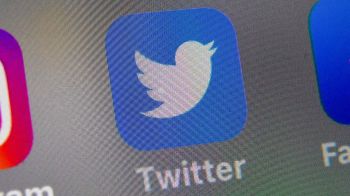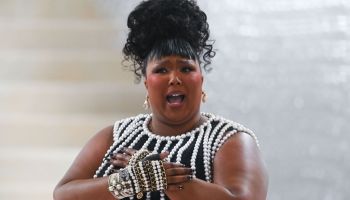In hip-hop circles, Nas has sometimes been called “The King of New York.” With his new collaborative album “Distant Relatives,” out this week, the Brooklyn-born hip-hop star is looking to expand his realm beyond the five boroughs. Nas has teamed up with Damian “Jr. Gong” Marley, one of the sons of reggae superstar Bob Marley, for a collection of songs that combines rap and reggae music.
The two genres have been combined many times before—Run D.M.C. did it on the song “Roots, Rap, Reggae” in 1985, and dancehall reggae artists regularly blend them. What makes “Distant Relatives” noteworthy is that it doesn’t just draw on reggae rhythms; the tracks also delve into Bob Marley-esque social themes. The album’s final song is called “Africa Must Wake Up”—not the kind of title that typically pops up on iTunes’s Hip Hop singles chart.
Nas, 36, has a history of challenging hip-hop conventions. His 1994 debut, “Illmatic,” explored urban blight with a poet’s eye, and his 2004 rap fusion song “Bridging the Gap” featured his father, jazz performer Olu Dara. Nas says working with a reggae artist on “Distant Relatives” seemed to be a natural next step. “We didn’t come up with the idea,” he says. “The idea came up with us.” The rapper and Mr. Marley will kick off a joint tour in Arcata, Calif. on May 21, with a stop at the Williamsburg Waterfront on July 31.
Nas spoke with The Wall Street Journal about his new album, Bob Marley, and Jay-Z.
The Wall Street Journal: What made you decide to work with a reggae artist?
Nas: I wanted to be challenged. I wanted to sound a little different than how I normally sound—the flow of it. So I changed it up.
WSJ: What do rap and Jamaican music have in common?
Nas: They’re both real music by people who are expressing themselves about the conditions around them. Many of those conditions are similar. Jamaican music can be aggressive, soulful, smooth and exciting all at once—just like hip-hop. At the same time, there’s nothing like Jamaica in the United States. Jamaica is its own thing.
WSJ: What kind of impact did Bob Marley have on your work?
Nas: Everyone listens to him—it’s not a Jamaican thing or an American thing—it’s all over the world. I’ve always wished to be able to do that once, as much as he does it naturally and easily on this untouchable level, I’d want to do that. Just touch people and help them on that same worldwide level.
WSJ: Lil Wayne is serving time on Rikers Island right now on a gun charge. How did he end up on your album?
Nas: Right before he went to jail, we sent him a track.
WSJ: Has he listened to it since you finished it?
Nas: We sent him a [finished] track and wished him speedy freedom because he doesn’t deserve to be in jail for a gun found on his bus that someone else said was theirs. He’s a rock star—what’s he doing in jail? I hope he gets out of there quickly and turns that around … He’s a great artist.
WSJ: In 1994 you put out a song called “N.Y. State of Mind.” Jay-Z recently had a huge hit with his anthem “Empire State of Mind.” What did you think of his track?
Nas: It’s just keeping that whole thing alive—this New York thing. There are a lot of people complaining about New York hip-hop, about it not being what it was, and he stood up and now we have another anthem to be proud of.
WSJ: Do you think you’ll write another New York anthem anytime soon?
Nas: I don’t know. I think [Jay-Z] pretty much handled it. Of course, I’m always gonna talk about New York—it’s the greatest city in the world. But I’m not in the studio making a New York record now to one up anybody, no.
WSJ: Your music once appeared in a LeBron James commercial. Any chance you’ll write a rap to try to get him to come to New York City?
Nas: That would be a great idea, because we sure could use him.
















